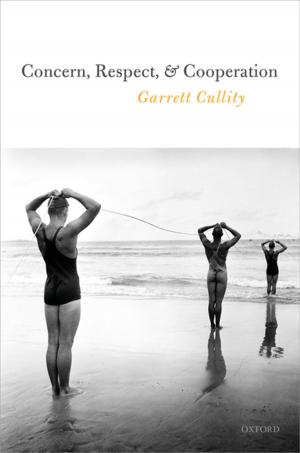The Crisis of Method in Contemporary Analytic Philosophy
Nonfiction, Religion & Spirituality, Philosophy| Author: | Avner Baz | ISBN: | 9780192522085 |
| Publisher: | OUP Oxford | Publication: | December 8, 2017 |
| Imprint: | OUP Oxford | Language: | English |
| Author: | Avner Baz |
| ISBN: | 9780192522085 |
| Publisher: | OUP Oxford |
| Publication: | December 8, 2017 |
| Imprint: | OUP Oxford |
| Language: | English |
Avner Baz offers a critique of leading work in mainstream analytic philosophy, and in particular challenges assumptions underlying recent debates concerning philosophical method. In the first part of The Crisis of Method, Baz identifies fundamental confusions about what the widely-employed philosophical "method of cases" is supposed to accomplish, and how. He then argues that the method, as commonly employed by both "armchair" and "experimental" philosophers, is underwritten by substantive, and poorly supported, "representationalist" assumptions about languageassumptions to which virtually all of the participants in the recent debates over philosophical method have shown themselves committed. In the second part of the book, Baz challenges those assumptions, both philosophically and empirically. Drawing on Austin, Wittgenstein, and Merleau-Ponty, as well as on empirical studies of first language acquisition, he presents and motivates a broadly pragmatist conception of language on which the method of cases as commonly practiced is fundamentally misguidedmore misguided than even its staunchest critics have hitherto recognized.
Avner Baz offers a critique of leading work in mainstream analytic philosophy, and in particular challenges assumptions underlying recent debates concerning philosophical method. In the first part of The Crisis of Method, Baz identifies fundamental confusions about what the widely-employed philosophical "method of cases" is supposed to accomplish, and how. He then argues that the method, as commonly employed by both "armchair" and "experimental" philosophers, is underwritten by substantive, and poorly supported, "representationalist" assumptions about languageassumptions to which virtually all of the participants in the recent debates over philosophical method have shown themselves committed. In the second part of the book, Baz challenges those assumptions, both philosophically and empirically. Drawing on Austin, Wittgenstein, and Merleau-Ponty, as well as on empirical studies of first language acquisition, he presents and motivates a broadly pragmatist conception of language on which the method of cases as commonly practiced is fundamentally misguidedmore misguided than even its staunchest critics have hitherto recognized.















